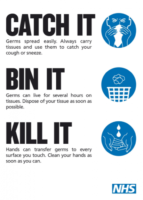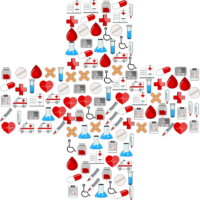The Trustees have made a decision to keep the centre shut for at least another week (23-27 March). Please keep checking facebook or the blog for further updates. Sue is also checking emails ms.therapy@btconnect.com Keep safe everyone.
Centre Urgent News!!!
We are highly suspicious that someone who has attended the centre has clovid 19 virus. It has therefore been decided by the Chair that we have to shut for the rest of this week. Sue will be contacting everyone who has been in the centre in the last 2 weeks to see if they have any symptoms. If there are none, we will be open again on Tuesday 24th March. If anyone does have symptoms we will be shut for a further week, with a view to re-opening again on 30th March.
PLEASE LET THE CENTRE KNOW BY EMAIL (ms.therapy@btconnect.com) URGENTLY IF YOU HAVE ANY SYMPTOMS AND YOU HAVE BEEN TO THE CENTRE WITHIN THE LAST 2 WEEKS. REMEMBER – EMAIL NOT PHONE.
I am sorry for any inconvenience caused.
Preventing the Spread of Coronavirus
Oxfordshire MS Therapy Centre
Preventing the Spread of Coronavirus
Information Sheet
- Coronavirus is a virus similar to the flu virus, which has the same symptoms and effects & spreads the same way.
- Our Centre users are generally more vulnerable to developing a more serious level of symptoms, therefore, prevention is more important.
- Coronavirus is a droplet infection, and
- the source of the infection is from a cough/sneeze, therefore catch all coughs & sneezes (in a paper hanky or sleeve etc), and immediately bin or wash
- the droplets quickly settle onto the surfaces below, therefore:
- hold your breath (if you can) for a while if someone coughs or sneezes to let the droplets fall
- regularly wash surfaces to prevent picking the virus up on hands
- the virus gets on your hands, therefore:
- regularly wash hands after touching surfaces
- learn not to touch your face with your hands, thus transferring the virus to mouth & nose
- Wash hands for 20 seconds (sing Happy Birthday twice!) with soap & water concentrating on wrists, between the fingers and around rings.
- Soap & water are just as good as hand gels, detergents, antiseptics – in fact, if available soap & water is better as it actually washes and not just kills the virus, this doesn’t mean that there isn’t a place for hand gels.
- Clean hands on arrival at the centre, thus preventing the virus coming into the centre (gel is provided as easier on arrival).
- Sign & symptoms – the same as flu and normally starts with a raised temperature & dry cough.
- If you get symptoms – call 111 and isolate yourself.
- Do not come to the centre if you think you may have been exposed to the virus.
Coronavirus

Coronavirus Public Information: Please follow all guidance being provided by HM Government and NHS regarding the containment of the virus.
The news is changing rapidly, please keep up to date with the national and local developments.
At the Centre we have provided additional hand sanitisers, tissues, waste bins, and displayed posters reminding people to regularly wash their hands along with the “Catch it, Kill it, Bin it” message.
If you are feeling unwell, or are in any doubt, please do not attend the Centre and follow the advice on the NHS 111 website or by calling the NHS 111 Helpline.
Coronavirus and MS

Source Multiple Sclerosis International Federation: The coronavirus and MS – what you need to know
The ‘novel coronavirus’ (recently named by the World Health Organization as COVID-19) is a respiratory illness that has not previously been seen in humans. COVID-19 is a strain of coronavirus that was first detected in China in December 2019, and has since spread to other parts of the world.
What does COVID-19 mean for people living with MS?
As this strain of the coronavirus is new, we still need to learn more about how it may affect people with MS.
Many disease-modifying therapies (DMTs) for MS work by suppressing or modifying the immune system. We know that people with MS who are receiving these therapies can face an increased risk of complications related to viral infections.
If you are taking a DMT and are either exposed to COVID-19 or are confirmed to have the COVID-19 infection, please contact your neurologist or other medical professionals. Read on.
MS Patients Switching from Tysabri to Other Therapies May Risk Disease Activity

Source Multiple Sclerosis News Today: Multiple sclerosis (MS) patients switching from Tysabri (natalizumab) to other disease-modifying therapies may have an increased risk of disease activity, though the risk is lower if the switch is limited to three months, a study found.
The results were published in an article, “Effect of switching from natalizumab to moderate- vs high-efficacy DMT in clinical practice,” in the journal Neurology Clinical Practice.
Tysabri, marketed by Biogen, is an antibody treatment that blocks immune system cells from moving into the brain and spinal cord. It was approved by the U.S. Food and Drug Administration (FDA) as a treatment for MS in 2004, but was pulled from the market after being linked to a rare neurological disorder called progressive multifocal leukoencephalopathy (PML). Read on.
Masitinib Slows Disability Progression in PPMS and Non-active SPMS, Phase 2/3 Trial Reports

Source Multiple Sclerosis News Today: AB Science‘s masitinib significantly slowed disability progression in people with primary progressive multiple sclerosis (PPMS) and non-active secondary progressive MS (SPMS) at a lower dose of 4.5 mg/kg a day, top-line results from a Phase 2b/3 clinical trial show.
Masitinib, formerly known as AB1010, is an oral therapy that inhibits the activity of cells in the innate immune system, specifically mast cells, microglia, and macrophages. In doing so, the therapy is expected to limit the inflammatory processes that cause damage to the nervous system in MS.
It may also have applications in other conditions, including other neurological diseases and certain cancers. Read on.
January 100 club winners
100 club winners for January
1st prize: Shirley Ray
2nd prize: Julia Gower
3rd prize: Sue Doran
Coronavirus
Coronavirus –
Statement from the MS National Therapy Centres
If you have travelled to any of the countries affected by the Corona virus please follow the protocol for self-isolation for 14 days.
If you have direct contact with anyone who either has Coronavirus or who has been to a HIGH RISK area, please stay away from the Centre for 14 days.
Wash your hands with soap and water frequently. If you cough or sneeze follow the standard hand hygiene advice: Catch it, bin it, kill it.
Guidance is constantly evolving and everybody is advised to follow the news and check www.nhs.uk or updates
NHS ‘rapid response teams’ to help sick and older people at home.

Source The Guardian: Plan aims to relieve strain on hospitals by offering a visit within two hours.
Older people and the very sick will be visited within two hours by a “rapid response team” of health and care staff under new NHS plans to relieve the strain on overcrowded hospitals.
The teams will include nurses, physiotherapists, occupational therapists, social workers and social care staff working for NHS trusts and local councils in England.
The “urgent community response” teams will operate 365 days a year. They will help older people and those with complex care needs whose health has suddenly deteriorated – through a fall, infection or exacerbation of an illness – try to avoid ending up in a hospital. Read on.




